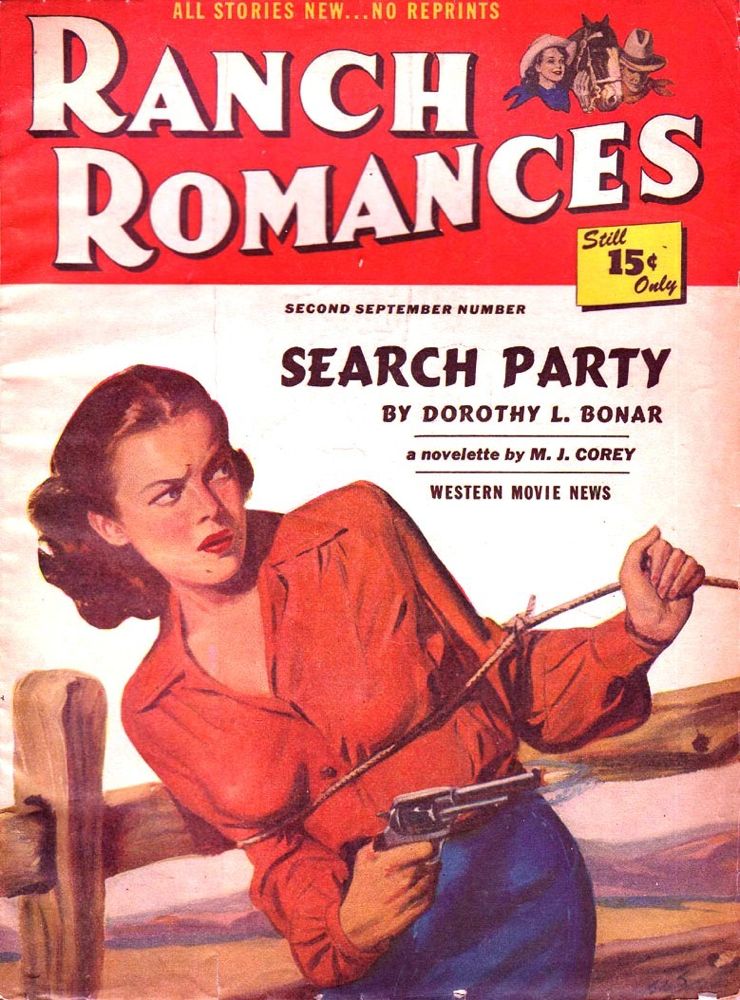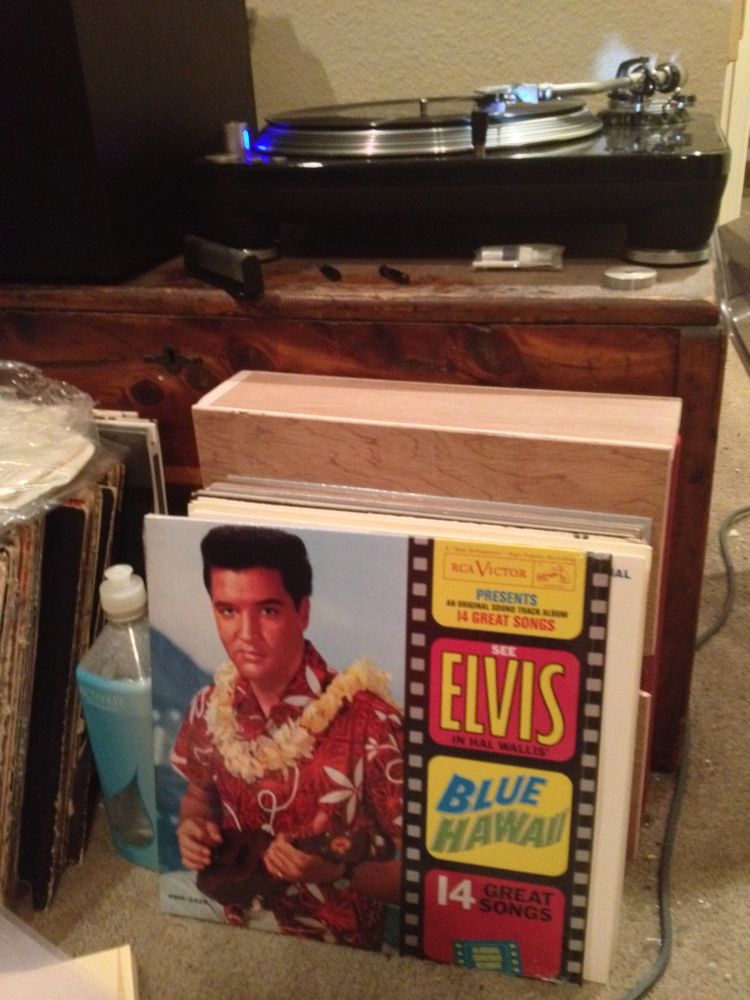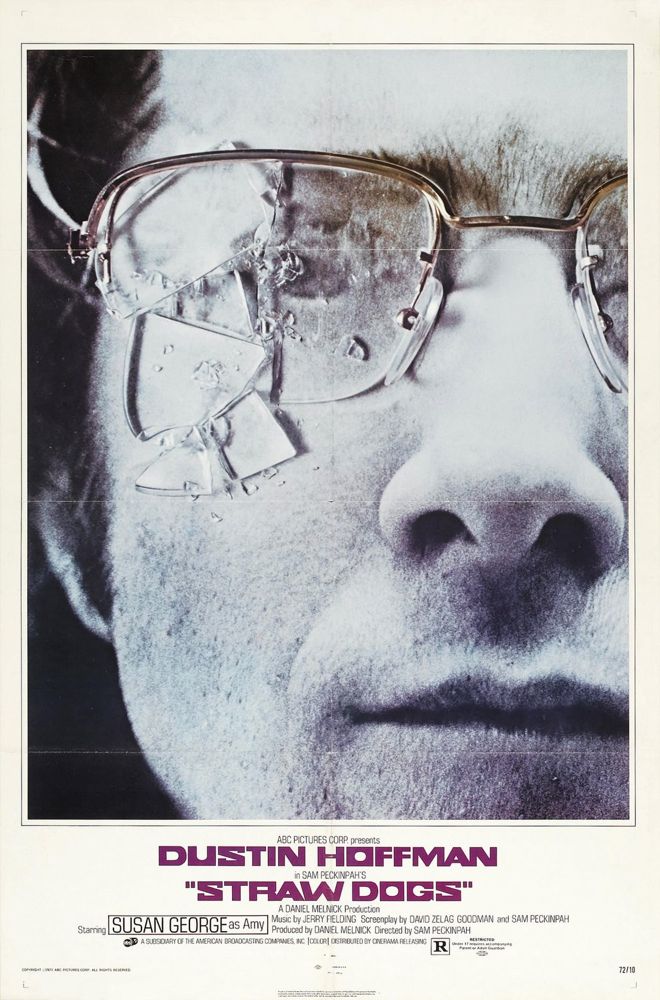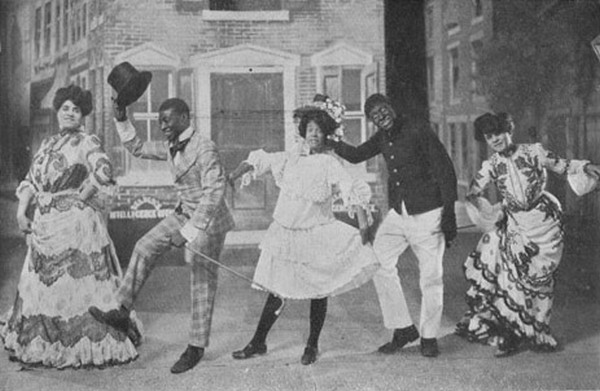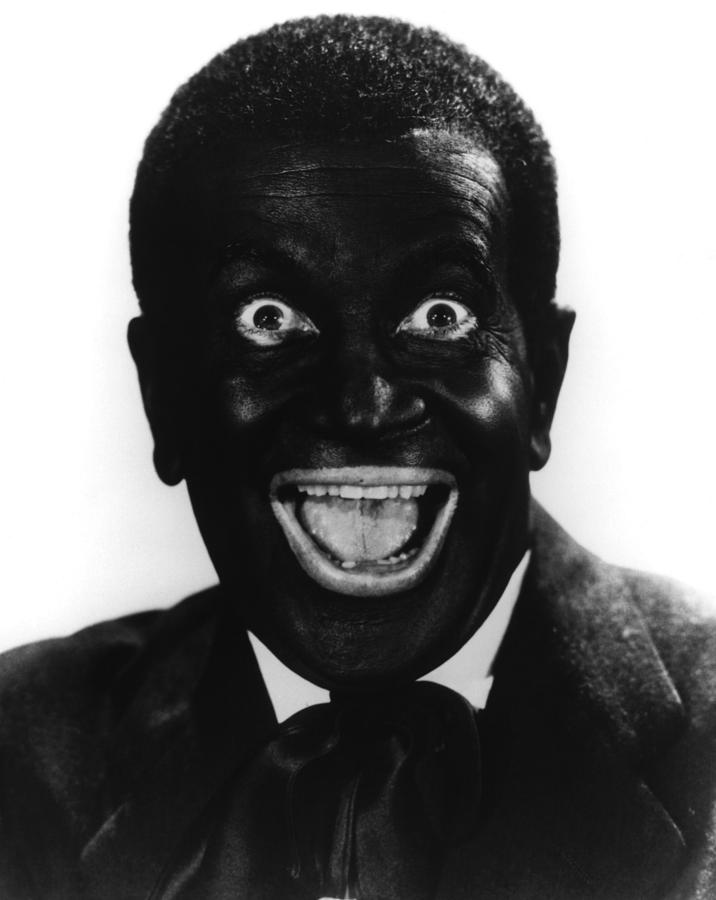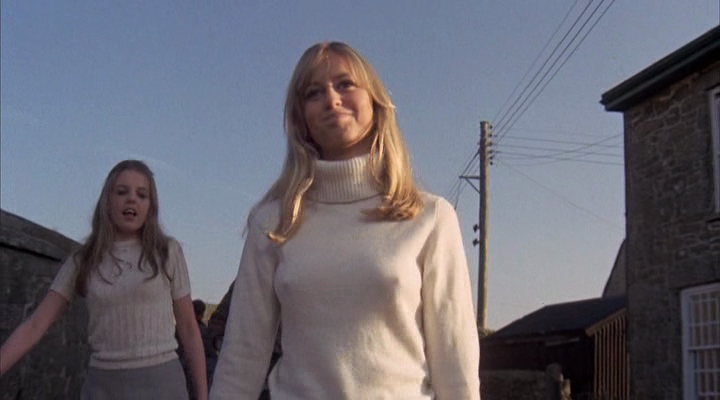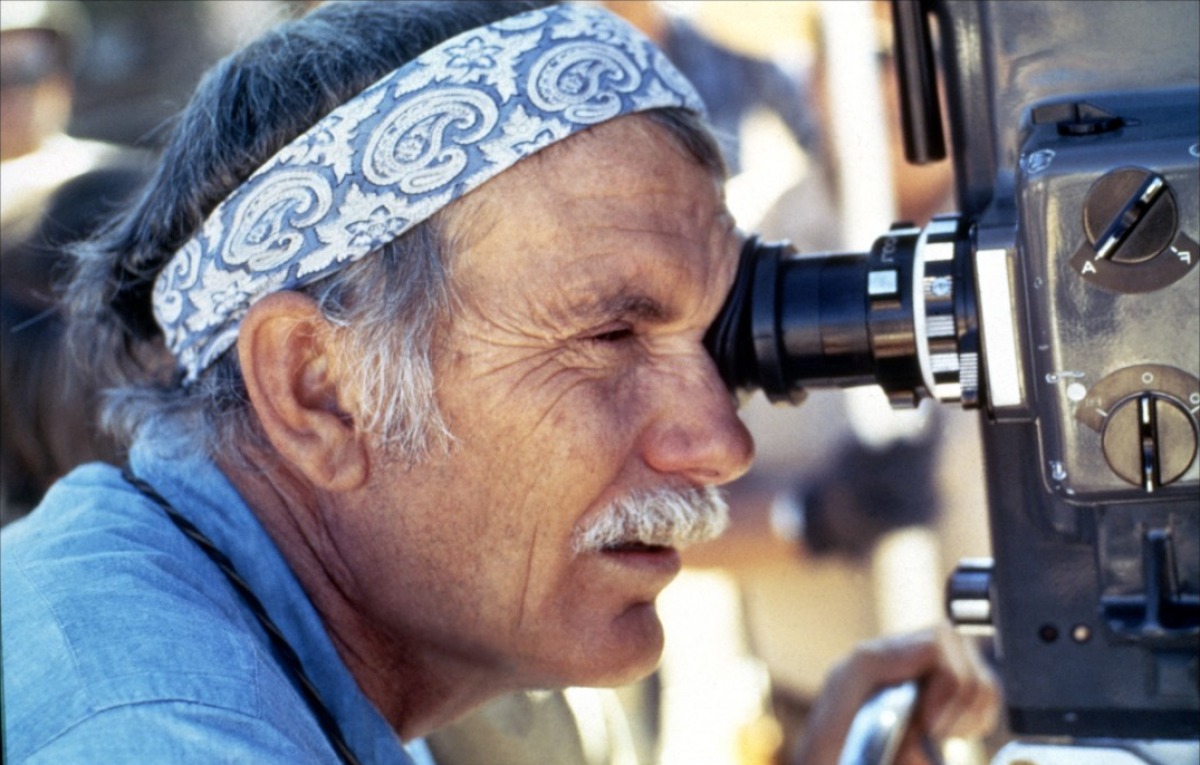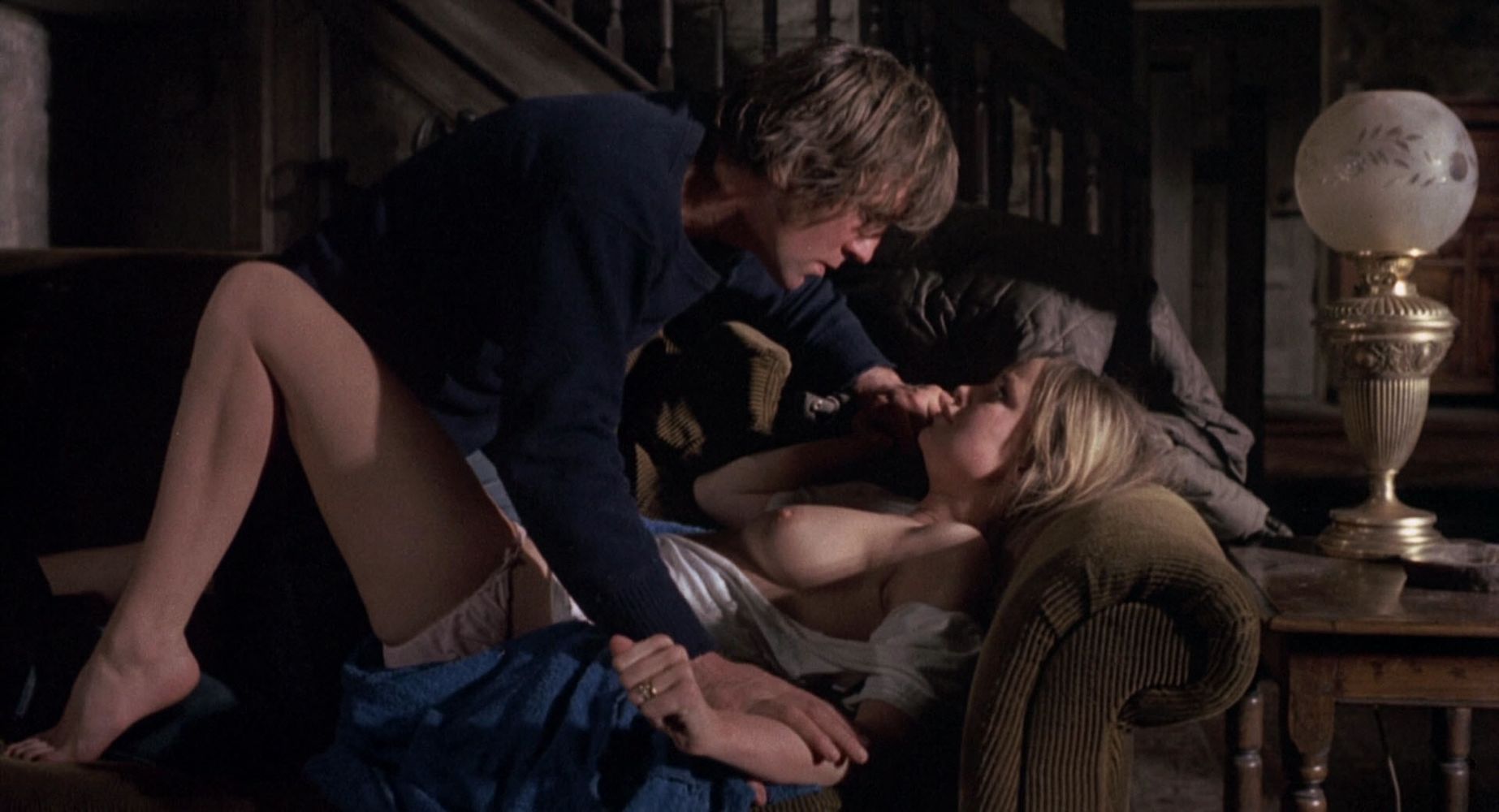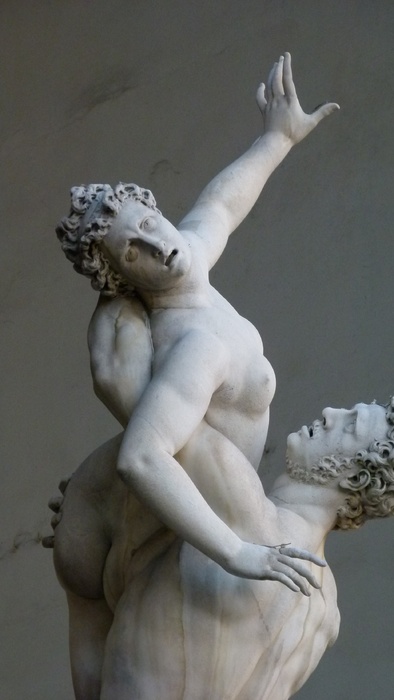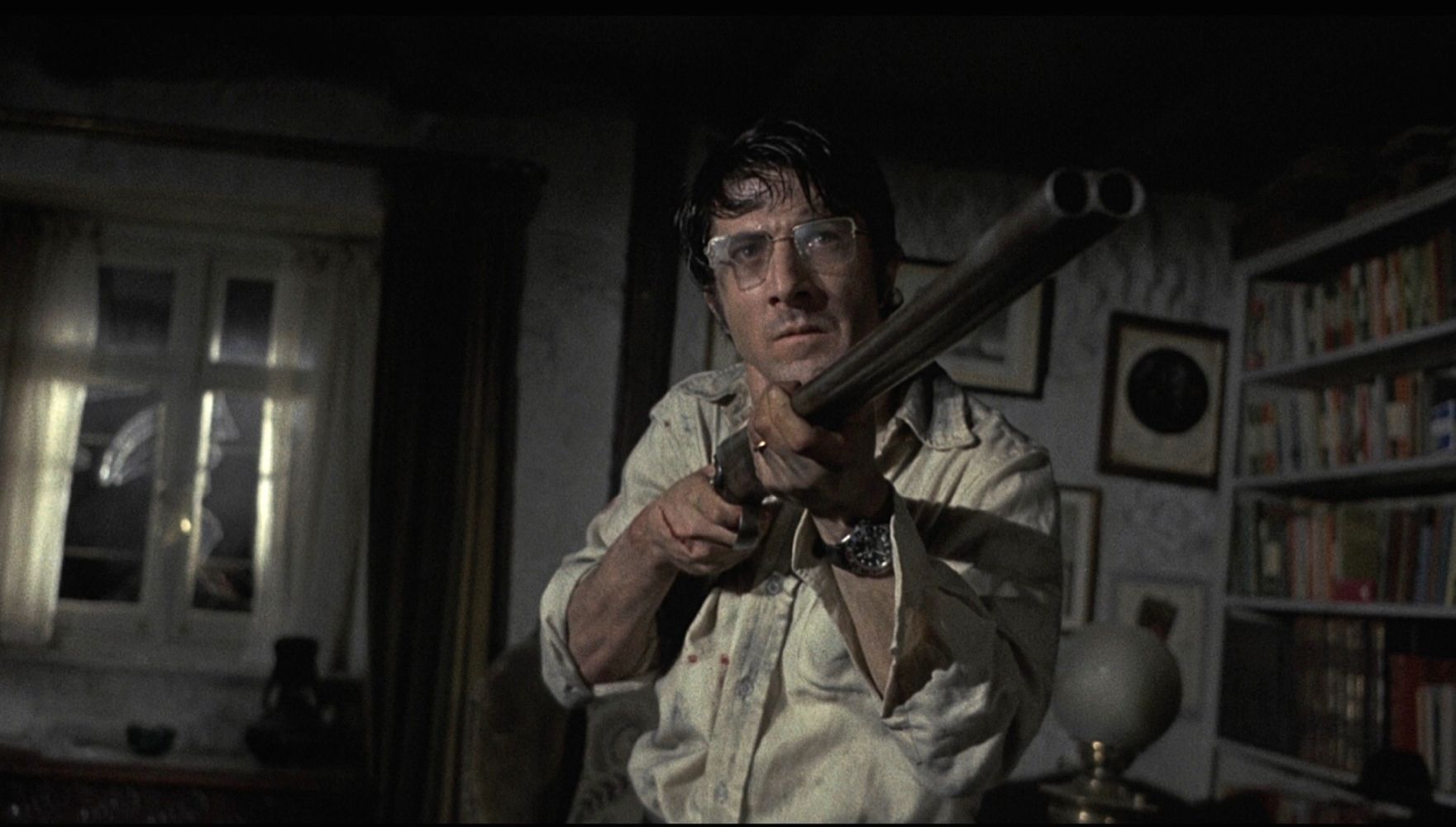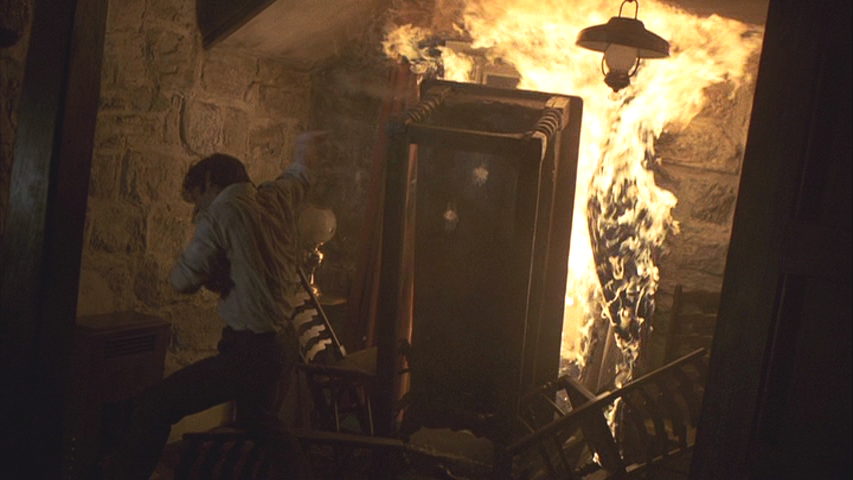Click on the image to enlarge.
Monthly Archives: May 2014
WHAT I’M SPINNING NOW
STRAW DOGS (1971)
Political correctness only seems to make the conversation of culture more humane — in fact it prevents us from finding ways of negotiating solutions to problematic ideas and attitudes. It essentially pretends that problematic ideas and attitudes will go away if we don’t talk about them, if we make it socially costly to talk about them.
This is not the way American culture functioned in the past. It used to be possible to express fear and mistrust of different ethnic and racial groups through humor — often a crude and offensive humor by modern standards. But there was a kind of democratic inclusiveness to the process. In certain circumscribed arenas, like the minstrel show, it was possible for blacks to make fun of white people’s airs — the cakewalk originated as a parody of the dumb way white people danced. It was funny and entertaining, so white people took to putting on blackface and doing the cakewalk — doing a parody of black people parodying white people.
Jews could parody Germans and the Irish and blacks in vaudeville acts, Gentiles could parody Jews. There was a patronizing malice in much of the parody, but the end result of it was a workable negotiation of diversity — you had to be able to take it was well as to dish it out, and if you could, you could be part of the national stew.
Sexism, like racism, is still with us, but we no longer have ways of negotiating sexist views openly — you must either condemn sexism or shut up about it. You can’t express it, even if you feel it. It’s sort of like imagining that you can cure cancer by refusing to let anybody talk about the symptoms of cancer.
Sam Peckinpah’s Straw Dogs from 1971 is rife with misogyny, with politically incorrect notions about the role of violence in establishing male identity. It’s a reprehensible film — but if anybody thinks it doesn’t reflect subconscious forces at work in even the most evolved human beings, they’re living in a dream world.
There’s a horrifying rape scene in the film, in which the rape victim is partly appalled and partly turned on by the act, for various psychological reasons having to do with her own personal history and situation. This is obviously unacceptable, because it seems to suggest that all rape is appealing to women on some level — a sick idea — but it also reflects an unmentionable truth, that women often fantasize about being ravished forcibly.
Such fantasies don’t go away just because it’s not permitted to talk about them or to deal with them in popular art. We can’t make rational distinctions between such fantasies and the reality of criminal rape if the whole subject is taboo.
By the same token, the protagonist of Straw Dogs finds his manhood by killing a slew of brutish home invaders — in self-defense, to be sure, but with a kind of existential satisfaction that really shouldn’t be encouraged in popular art. And yet that fantasy of killing people who want to violate one’s home is part of the male psyche — men want to stand their ground. Isn’t it better to drag that out into the light of day than to suppress it as merely pathological?
Sometimes we need artists like Peckinpah to rub our noses in the problematic undertows of the human psyche, just as we need comedians to rub our noses in the lingering bigotry of our culture — to acknowledge and display the politically incorrect parts of our nature, so we know ourselves better, so we have a chance to rise above who we, for all our good intentions and politically correct aspirations, indisputably are.
We need occasions in which we can appall ourselves. It’s good for us.

